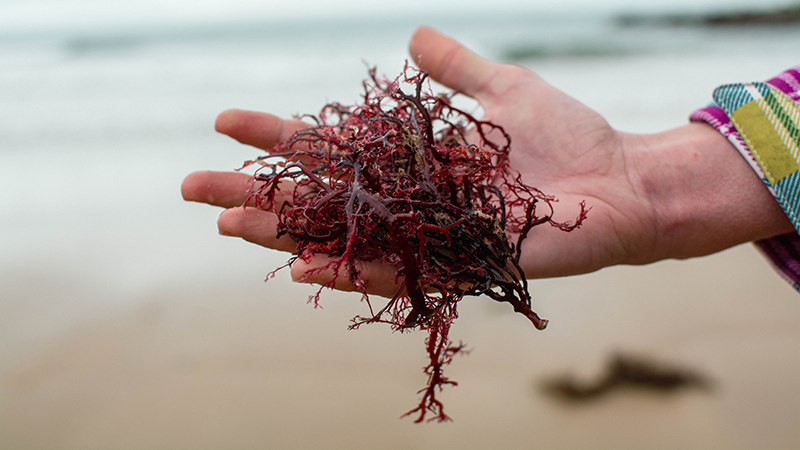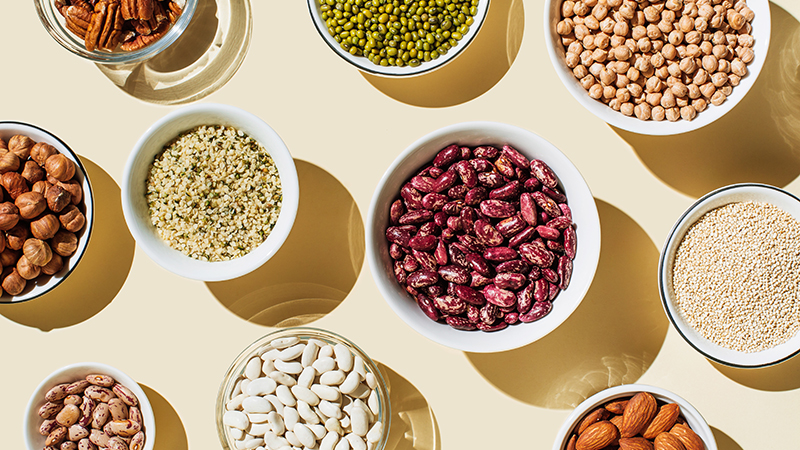Eat Your Greens
Seeing Green in Your Diet
Updated March 2024
You’ve heard it from your parents. You’ve said it to your children.
“Eat your greens.”
There’s a reason the phrase is so common: It’s good advice. Green foods are packed with vitamins, minerals and antioxidants.
Antioxidants help fight against damage caused by free radicals in our food and environment that contribute to aging and many diseases, including cancer.
You can incorporate more greens into your diet by:
- Drinking them. Try spinach in a smoothie or celery juice in the morning.
- Roasting them. For more flavor, try roasting pistachios or kale in the oven.
- Filling up on them. Eat a protein, like chicken or tofu, over a bed of greens to feel fuller, longer.
Foods with a natural green color can pack a powerful nutritional punch.— Audra Wilson, MS, RDN, CSOWM, CSCS
“Foods with a natural green color can pack a powerful nutritional punch,” says Audra Wilson, MS, RDN, CSOWM, CSCS, a dietitian at Northwestern Medicine Metabolic Health and Surgical Weight Loss Center at Delnor Hospital.
Below, Wilson reviews the health benefits of popular green foods.
Celery Juice
- Great source of vitamin K, which supports the immune system and healthy bone and blood vessels
- Hydrating, celery is 95% water
Good to know: If your physician has recommended avoiding grapefruit juice, you should also avoid celery juice. Grapefruit and celery juice can either increase or decrease the amount of the medication in your body and cause additional side effects. If you are on any medication, consult your physician before drinking these juices. Also, eating celery sticks instead of juice provides a good source of fiber, which can help stabilize your blood sugar.
Pistachios
- High in healthy fats, fiber, protein and antioxidants
- Less saturated fat and more protein than most nuts
- One of the foods that is richest in B6, which helps your body regulate blood sugar and make hemoglobin
Good to know: Shelling pistachios by hand helps promote mindful eating and adds interaction with your food.
Spinach
- High in vitamins that promote healthy bone, skin and hair
- Can help lower blood sugar levels and increase insulin sensitivity in people with diabetes
Good to know: Spinach is high in vitamin K. People on blood thinners need to be cautious with their vitamin K intake. It’s also high in potassium. People with kidney disease or damage may need to limit spinach intake.
Kale
- Low in calories and rich in vitamins, antioxidants and minerals, and an excellent source of vitamin C
- May help lower cholesterol
- May reduce the risk of eye diseases, including macular degeneration and cataracts
Good to know: People taking blood thinners need to limit kale intake per the recommendation of their physician.
Seaweed
- High in iron, calcium, antioxidants, omega-3 fatty acids and fiber
- Contains prebiotics, necessary for feeding probiotics, which help improve gut health
- Contains iodine, which helps support thyroid function
Good to know: If you have thyroid irregularities, consult your physician before eating seaweed. Seaweed may contain heavy metals and should be consumed in moderation.
Avocado
- Higher in potassium than bananas, which may help reduce blood pressure
- High in healthy fats, including oleic acid, which may help reduce inflammation
- High in fiber and antioxidants
- May reduce the risk of cataracts
Good to know: Swapping avocado oil for peanut or soybean oil will add more omega-3 fatty acids to your diet, a nutrient many American diets lack.





